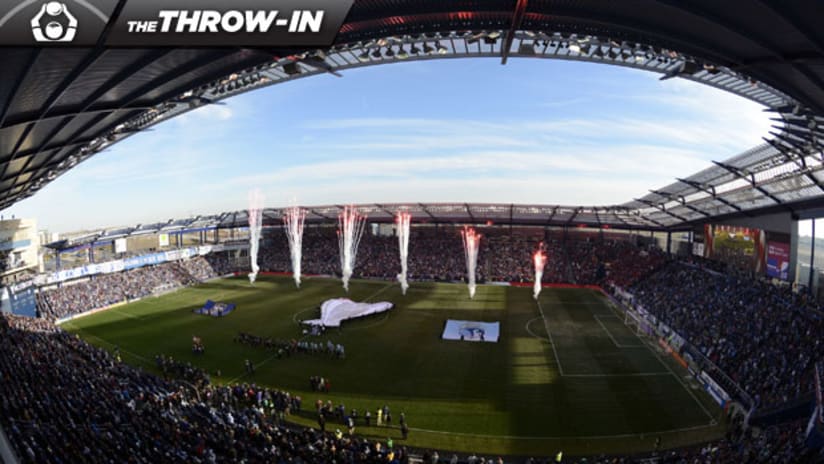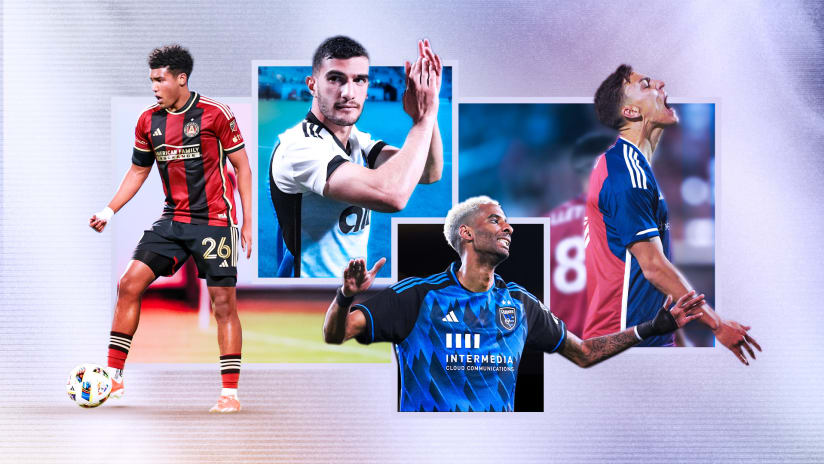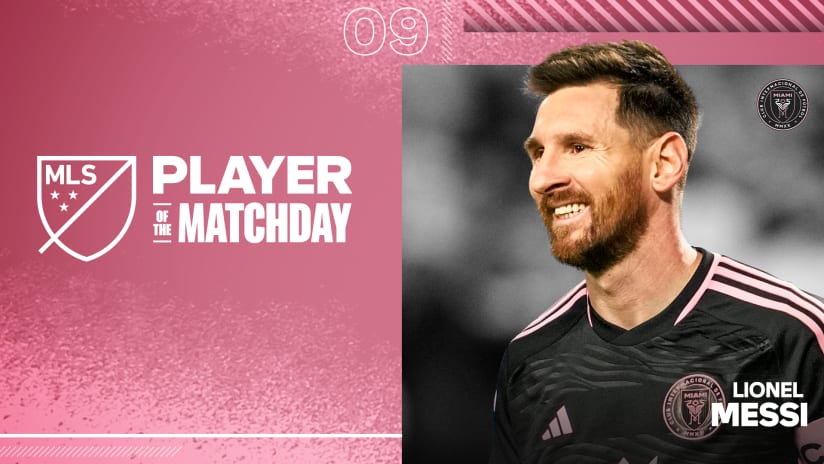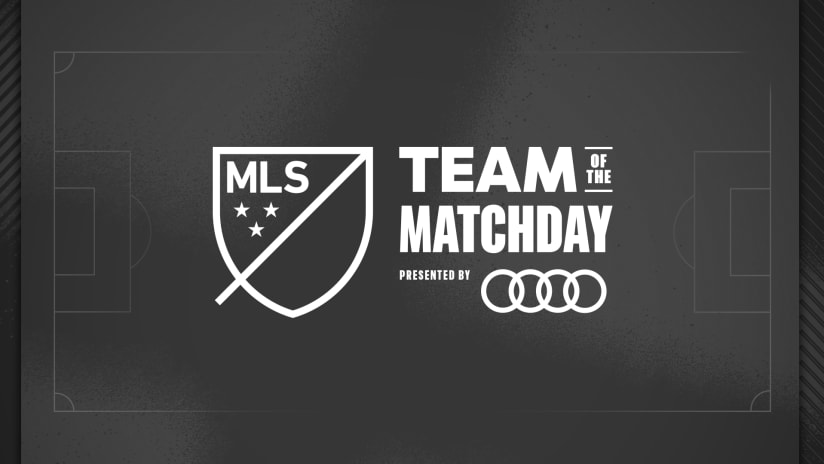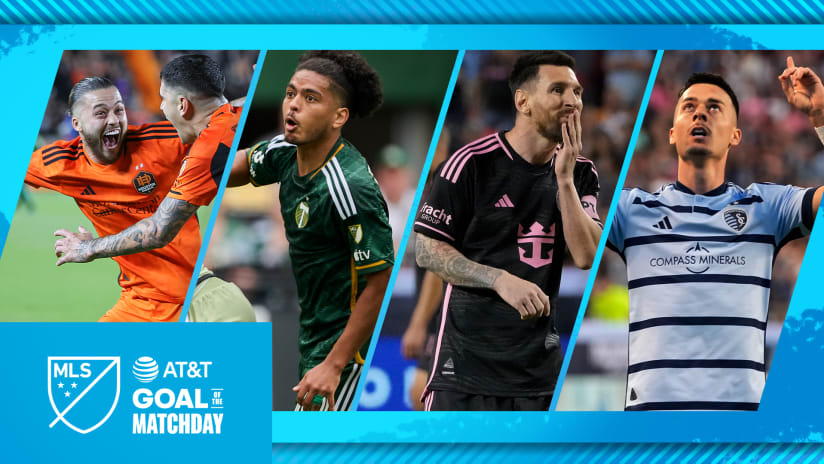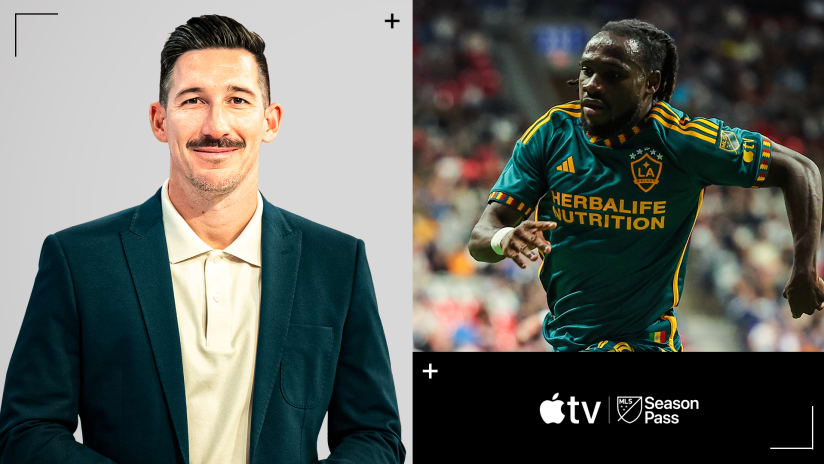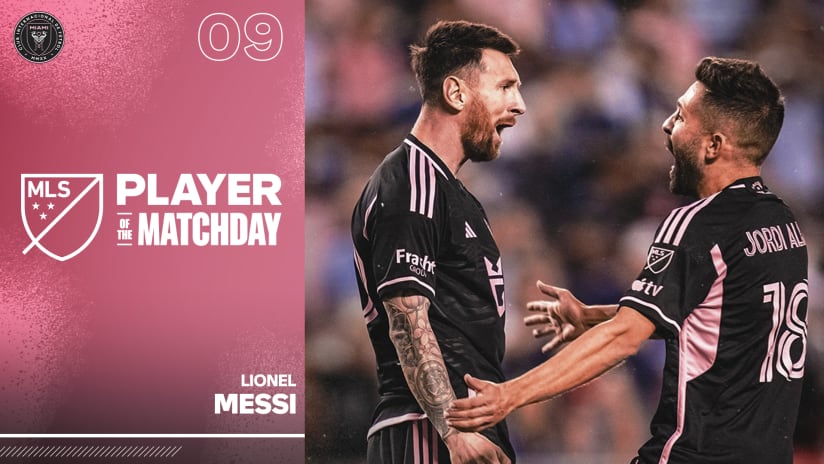I made it longer than a World Cup cycle. I did better than 90 percent of men who served as national team coaches.
At least that’s the way I’m looking at it. This is my final Throw-In column. After four-and-a-half years as MLSsoccer.com’s managing editor, I’m stepping away for a new opportunity. And no, smart guys on Twitter, I’m not taking a gig at Chivas USA. My next challenge is outside the soccer world.
And that’s a little daunting. I’ve spent the past decade as a soccer journo. I’ve been to two World Cups, six MLS Cups, three CONCACAF Gold Cups, around 50 US national team games and I’ve attended more MLS regular-season games than nights Jermaine Jones has spent at swank nightclubs springing for bottle service.
The Next LD Plays For FC Dallas
Click here to download the episode on MP3
So stepping outside of something I know pretty well is definitely a step outside my comfort zone. But I’ve seen a lot – good things and bad things as the sport of soccer slowly takes over America.
My final farewell is a look back at some of those things. Here are, in chronological order, my nine most significant moments in North American soccer during my time at MLSsoccer.com. Why not 10? Always leave ’em wanting more:
Thierry Henry Joins MLS (July 13, 2010) – OK, so David Beckham’s arrival three years prior made a bigger splash and was, in the long run, the real game-changer for Major League Soccer. But lost in the narratives of history is that Europe’s love affair with Becks’ had run dry.
Not so with Titi. Henry had hinted for years that he wanted to play in New York. Not to make a statement, not for a “new challenge,” as Beckham repeated over and over again – but because he wanted to. It was a specific goal for the all-time leading scorer in Arsenal history.
And thus, Henry became a model Designated Player: a star close to his prime, with skill and charisma oozing out of his ears who both put butts in the seats and backed it up with stuff like this:
My colleague Matt Doyle will tell you the greatest player, pound for pound, ever to suit up in MLS is still Lothar Matthäus. I respectfully disagree.
The First Canadian Derby (March 19, 2011) – The game itself was entertaining: a six-goal affair and a win for the home side in their first MLS game. But Vancouver’s 4-2 victory over Toronto FC at Empire Field was significant for another reason: It was the first time you could hear “O Canada” – and “O Canada” only – before an MLS game.
MLS took a big gamble when it chose to expand to Toronto last decade, becoming one of only four top-flight leagues in the world to include a team from another country. The additions of Vancouver and then Montreal officially made the league the caretaker of the game in two countries. As if the goal of turning the United States into a world power wasn’t daunting enough. Turning the tide in Canada is an even bigger challenge.
The Death of Bobby Rhine (Sept. 5, 2011) – This one hit the MLS world hard. Rhine’s death was so wholly unexpected that it took a long time to process it. (If you haven’t read this piece on it by Nick Firchau, you’re missing out on one of the best things ever written at MLSsoccer.com.)
It was one of those moments that remind you that soccer is, at the heart of it all, just a stupid little game. When you start subtracting people like Bobby – one of the all-time good guys in MLS – it’s really just a sport that exists in a vacuum.
We also lamented at the time that it marked the passing of a one-club man whose very identity was inseparable from the club where he spent his entire career. Fortunately for Rhine, his family and the whole FC Dallas organization, there is another: Oscar Pareja – another quality human being – is becoming that guy and giving Dallas fans a new face to celebrate.
A Pharaoh Named Bob (Sept. 14, 2011) – Plenty of Americans have taken on great challenges abroad, and some are even pioneers. Take Tim Howard’s journey from Jersey to Manchester, for instance. Or John O’Brien joining Ajax’s academy. Or even further back, a young American named Mike Getchell becoming the first to go it alone in Mexico.
None of them compared to what Bob Bradley took on when he was named head coach of the Egyptian national team. New continent, new culture – check. But also an established national team program with loads of history, fallen on dark times and plunged into the middle of political chaos.
Bob didn’t get the Pharaohs back to the promised land of the World Cup – blame a ridiculous African qualifying format for that. But he still accomplished something remarkable: He gave Egypt their footballing dignity back. And became the greatest soccer export in American history.
Mexico Unify the Title (April 2, 2012) – It marked a dark day no American fan ever wanted to see: the day Mexico clinched every single men’s title in CONCACAF. When El Tri won the 2012 Olympic qualifying tournament – also CONCACAF’s U-23 championship – it marked a clean sweep of every level of the pyramid at the men’s level.
It wasn’t only a sign that Mexico had gotten everything right; it was a sign that US Soccer had to take a long look in the mirror and ponder how we’d lost so much ground to our archrivals to the south.
These things, as we all know, are cyclical. This marked a temporary triumph for Mexico’s youth-development program and an example for US Soccer and MLS. Mexico have since defended their U-20 and U-17 titles. The USMNT did win back the Gold Cup last summer, and topped the World Cup qualifying Hexagonal yet again … but there’s still lots of ground to make up to swing the pendulum back the other way.
The Small-Market MLS Cup (Dec. 7, 2013) – Sporting Kansas City vs. Real Salt Lake may have been my favorite MLS Cup matchup in history. No, it didn’t do much for the marketing departments in Midtown Manhattan or in Bristol, Conn.
Instead it was a celebration of two of the best institutions in the league: clubs with a true tactical identity, “systems” that required the buy-in from everyone on the roster and arguably the best and most consistent teams in the league over a five-year stretch. It was “The Team is the Star” vs. “Sporting Fit.” The inimitable Simon Borg put it best in this column.
And the match itself, played in the bitter cold of winter on the plains, was a classic, going 120 minutes and to penalty kicks. I’d take a rematch in a second.
Michael Bradley Comes Home – Sort of (Jan. 9, 2014) – A bloody big deal! Clint Dempsey’s return to MLS the prior summer was more of a needle-mover perhaps – Deuce was the USMNT captain, after all. But Bradley returned to MLS and joined Toronto FC home while his star was still in ascendance, at the age of 26.
To me, it wasn’t so much the example he set for other players, fans or even other MLS clubs. It was the grander message of what it said to aspiring young players with national team dreams.
Landon Donovan Dropped (May 22, 2014) – It’s been three months and it still doesn’t seem possible. The all-time leading scorer and greatest player in US national team history was deemed not good enough to send to Brazil.
This was a weird one. I was at Stanford University that morning for pre-World Cup training camp, and there was zero indication that the final roster would be dropped that day, a week-and-a-half before the FIFA deadline, let alone that Donovan wasn’t going to be on it.
Put aside all the narrative from that moment: the rumored tension and history with Jurgen Klinsmann, the rhetoric that others were ahead of Donovan in the pecking order. This was never about Donovan. This was about Klinsmann signing his name in dark ink that he was going to craft his team his way. And in the end, American sentimentality was naïveté.
Sure, there were hints in the months leading up to this moment. Klinsmann had frozen out Michael Bradley and Jozy Altidore for brief periods, and dropped then-USMNT captain Carlos Bocanegra from the team for good. But somehow, the emotional gut-punch of doing the same with the Greatest American Hero was too much for many.
And so fans were denied the chance to see what Donovan could’ve done in Brazil. To some degree, we got over it. And in a lot of ways, Klinsmann did us a favor: He forced us to get used to the idea that American soccer is going to have to go on without Donovan. Like it or not.
DeAndre Yedlin Is Ready for His Close-up (May 22, 2014) – For every fond farewell, there’s a warm welcome. The end of the Donovan Era also signaled an underlooked moment for the USMNT: the first MLS Homegrown to make the World Cup squad. After all, that’s what the system is in place for. And proof, perhaps, that the next US hero may be right around the corner.
So long, everyone. Thanks for reading and I’ll see you soon.

